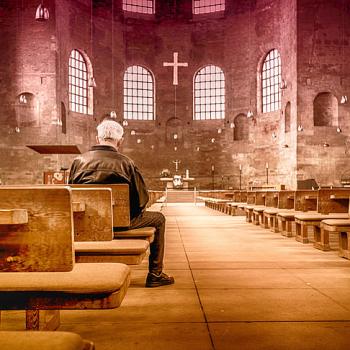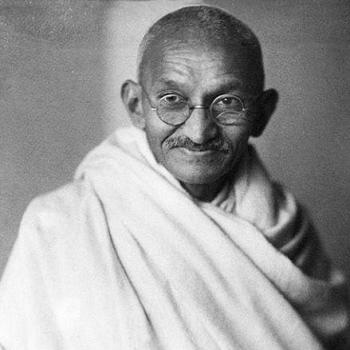 At first, it seemed to me that the Egyptian protests would fall into the category of China's Tiananmen Square uprisings—young, educated, brave fighters for democracy ultimately doomed by a dictatorial government. Now, I think we are watching another version of the Berlin Wall falling. These persistent rebels seem to have gotten past the tipping point. Yet, while the end of oppression by dictatorial rule seems similar, there is little question that the landing for these democracy proponents will be decidedly different.
At first, it seemed to me that the Egyptian protests would fall into the category of China's Tiananmen Square uprisings—young, educated, brave fighters for democracy ultimately doomed by a dictatorial government. Now, I think we are watching another version of the Berlin Wall falling. These persistent rebels seem to have gotten past the tipping point. Yet, while the end of oppression by dictatorial rule seems similar, there is little question that the landing for these democracy proponents will be decidedly different.
When Eastern Germany overcame and left behind the oppression of Communist rule, it became part of Europe, with all of its western traditions, constitutions, and human rights. There was this either-or situation, so that the East Germans simply had to shrug off the oppressors to be released to a western, pro-democracy, stable rule-of-law order.
Not so with Egypt. Egypt is situated in a part of the world where there are a variety of options to "fall" into, none of which looks like western democracy as we know it. We need to understand that for Egypt a huge step forward may look to our eyes like a small—even trivial—advance toward democracy. There are three ways Egypt might go.
Before getting there, though, it is important to remember that the movement and unrest is being fomented for secular reasons. The protestors are motivated by a desire to overthrow a dictator, a taste for democracy (at least of sorts), and deep dissatisfaction with the economy. This is not a religious movement, though religion will undoubtedly figure into how it all works out. So here are the three options.
First, and least likely, there is the Iranian option, a religious dictatorship. Second, and also unlikely, is a western-style democracy that resembles the United States. Third, and most likely, is an intermediate democracy where the military creates enough stability so that the seeds of democracy can be sown. Whether those seeds will sprout or be overcome with weeds is a question that takes us far beyond this moment.
The United States long has backed the current leader and dictator, Hosni Mubarak, in part because Mubarak has been successful in arguing that he is the only thing that stands between Egypt and the fundamentalists. According to Professor Mehrdad Kia, of the University of Montana, though, this is false, because the Muslims in Egypt are primarily Sunni, not Shia. The Shias believe in a near-monarchical succession of imams and grant imams both spiritual and earthly, political power. They are the ones who now rule Iran. No significant number of Shia clergy are available in Egypt to wrest power away from this predominantly secular movement.
Egypt is dominated by the Sunni Muslims, whose faith does not elevate imams to a religio-political pinnacle and whose beliefs can be reconciled with democracy. This is not to say all Sunnis are without danger. Al-Qaeda is an extremist branch of the Sunni Muslims.
Mubarak typically has scared Americans by invoking the Muslim Brotherhood as the source of jihadism in the country, but there is not strong evidence to support an argument that the Muslim Brotherhood is a front for al-Qaeda. True, there are plenty of conflicting sources of information about the Brotherhood, which should make one pause. However, according to the most well-known leader of the democracy movement, Nobel prizewinner, Mohamed ElBaredi, the Brotherhood composes no more than 20 percent of the Egyptian population, is not an al-Qaeda front, and, therefore, is unlikely to be able to capture full control. He expects power may need to be shared with them, but rejects the notion that Egypt will become another Iran if Mubarak departs.
Circling back to Professor Kia, though, the key here is that it would take the presence of large numbers of Shia Muslims and their authoritarian imams to make Egypt like Iran. They just aren't there. Therefore, despite the presence of large numbers of devout Muslims, democracy could be culled from the culture. Perhaps this reality is what has led Secretary of State Clinton and President Obama to take the line that Americans support democracy and that any "solution" in Egypt will be a step closer to real democracy.
Second, Egypt will not be able to adopt American-style democracy immediately. That would be a step as yet too far. There is no entrenched, neutral, and unbiased judiciary to hear disputes and draw the boundary lines of power. There is no experience with a free press, free speech, or meaningful free exercise. Even more important, though, in my view, is that the concept of a state divorced from religious control is not a hardy one, to say the least.
According to Professor Kia, there are three categories of Muslims: 1) the radical fundamentalists; 2) the "centrist" Muslims; and 3) the "Westernized" Muslims. The centrists compose by far the largest category, about 80-85 percent. The rest (about 15-20 percent) can be divided into the most repressive and the most liberal. It is crucial that Americans come to understand the vast swath of Muslims in the world, and their makeup. They number approximately 1.3 billion; there are 57 countries with significant Muslim presence, and 22 of those are Arab. The vast majority holds beliefs that are not necessarily inconsistent with democracy.





